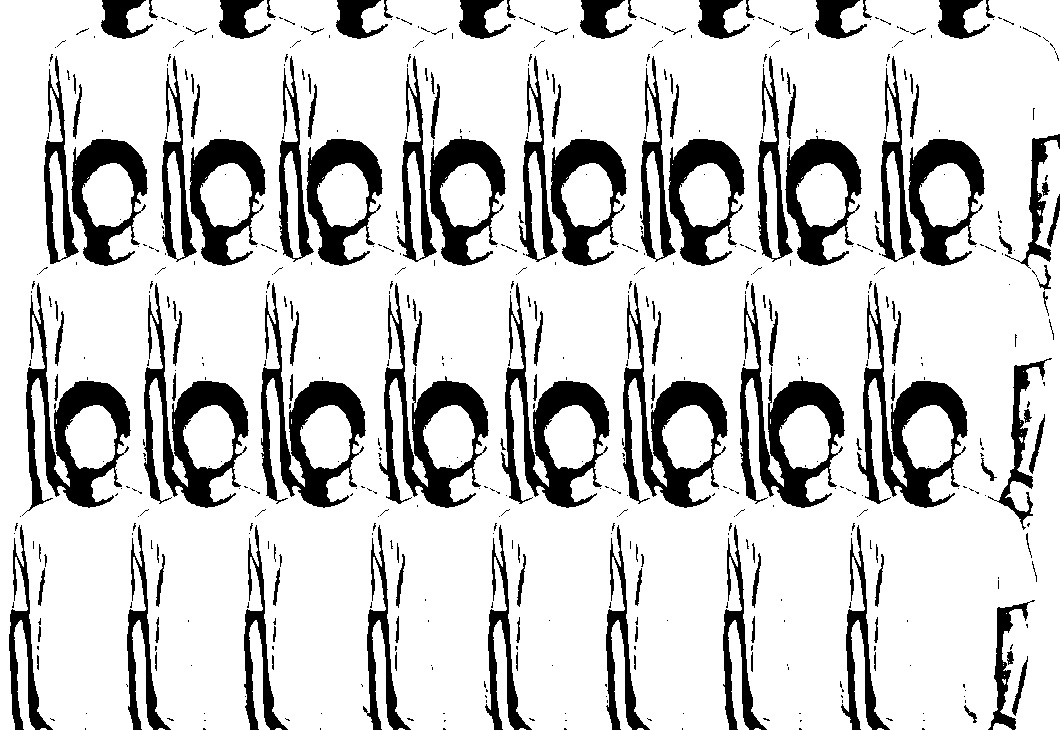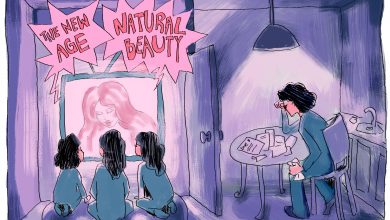Mistaking Emotional Labor for Intersectionality

Illustration by Carmen Li.
The growing popularity of intersectionality in mainstream feminism has undoubtedly come with its fair share of benefits. People are now, more than ever, gaining greater space to discuss race, religion, gender and sexual identities, and physical and mental disabilities as they relate to personal womanhood.
However, the concept of intersectionality itself has been appropriated by numerous groups seeking to validate their own ideologies by slapping on a label without understanding it.
One such group comes in the form of seemingly well-meaning, often cis-hetero men. These kinds of men may talk to you about the weight and woes of patriarchal structures and use buzzwords and phrases like “hypersexualization,” “empowerment,” and “toxic masculinity,” without fully comprehending them.
These types of men often engage in certain types of toxic communication. They might begin to unload their emotions onto you, then expect you to bear the burden for them in the name of feminism and “intersectionality.”
By using the term as validation for their behavior, they not only undermine and misunderstand the complex theory itself, but are exploiting the women around them into emotional labor.
This is problematic for multiple reasons, the first being the perpetuation of particular gender roles in the form of emotional labor. In Arlie Hochschild’s book The Managed Heart, she argues women are disproportionately believed to be good at managing emotional work as a function of their gender, regardless of actual skill or willingness. Although her context surrounds the service economy, the concept exists in personal relationships as unpaid work, as well.
By asking you to absolve them from their privilege-bound guilt, work through their emotional and psychological struggles, and/or bolster their egos, they’re ensuring their own satisfaction and comfort without considering yours. Any contention to this obligation is often thwarted by accusations of being “oversensitive” or of reinforcing archaic ideas of masculinity and therefore undermining intersectional principles.
Which is not to say men should be forced into boxes of competitiveness, violence, and sexually aggressive attitudes. To the contrary, deconstructing these behaviors by encouraging sensitivity and reflectiveness in men is a key component of countering patriarchal norms.That is, men and boys should be encouraged to embrace vulnerability and femininity. However, expecting women and femmes to emotionally service the men in their lives is not expression of intersectionality. It is just another mechanism that asymmetrically benefits men.
Men are allowed to be angry. In feminist spaces, they are lauded for expressing sadness or grief and are appreciated for occupying atypical social roles. While the latter expressions do fight against dominant and hypermasculine characteristics of manhood, women and other femmes are not afforded this kind of privilege.
We have been — and continue to be — seen as weak for being emotional. Female anger causes a loss in credibility. There is active systemic and institutional discrimination against women and femmes for showing emotion or for embodying sensitive characteristics by virtue of being a woman or “woman-like.”
By definition, intersectionality is the study of overlapping or intersecting social identities and related systems of oppression, domination, or discrimination. So how does placing responsibility on women and femmes to perform emotional labor uphold intersectionality?
Given that men do not face this same oppression for speaking up about mental illness or expressing their feelings, we should instead be placing more responsibility on men to participate in emotional labor themselves.




